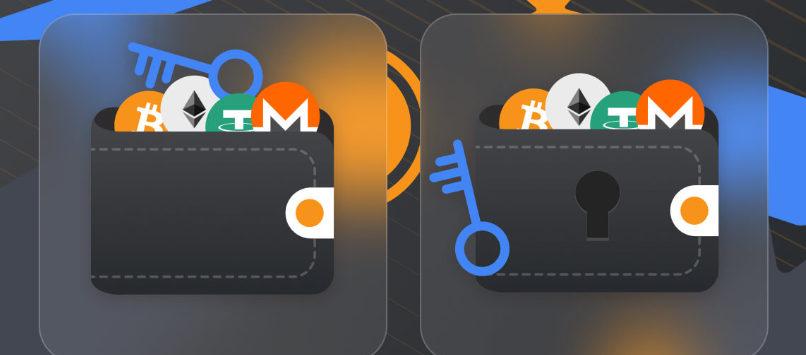In the ever-evolving realm of cryptocurrencies, safeguarding your digital assets is paramount. This begins with choosing the right crypto wallet to suit your needs. With a plethora of options available, it’s crucial to understand the various types of crypto wallets, each offering its unique advantages and disadvantages. In this comprehensive guide, we’ll delve into the world of crypto wallets, exploring hardware wallets, software wallets, paper wallets, and mobile wallets, so you can make an informed decision and fortify your crypto holdings.

Hardware Wallets
Hardware wallets, often referred to as the Fort Knox of crypto storage, are tangible, physical devices explicitly designed to store cryptocurrencies securely offline. These wallets are celebrated for offering unparalleled security by protecting your assets from online threats such as hacking and phishing.
Pros:
- High-Level Security: Hardware wallets are immune to online attacks, making them impervious to malware and hackers.
- User Control: Users possess absolute control over their private keys, reducing dependency on third parties.
- Offline Storage: By staying offline, hardware wallets remain invulnerable to internet vulnerabilities.
Cons:
- Cost: The high level of security comes at a price, with hardware wallets typically being more expensive than other options.
- Not Ideal for Frequent Transactions: If you frequently engage in crypto transactions, the process of accessing your hardware wallet each time might be less convenient.
Software Wallets
Software wallets, also known as hot wallets, are software applications that you can install on your computer or smartphone. These wallets are favoured for their flexibility and ease of access, making them a popular choice among crypto enthusiasts.
Pros:
- Accessibility: Software wallets are readily available and easy to set up, making them ideal for beginners.
- Versatility: You can manage multiple cryptocurrencies within a single software wallet, streamlining your diverse portfolio.
- User-Friendly: The intuitive interfaces of software wallets make them user-friendly for day-to-day transactions.
Cons:
- Security Concerns: Software wallets are susceptible to online threats, including malware and phishing attacks.
- Dependency on the Internet: Since they are connected to the Internet, software wallets are inherently exposed to certain risks.
Paper Wallets
Paper wallets stand out as a unique entity in the crypto realm, offering an ultra-secure, offline method for storing digital assets. As the name suggests, a paper wallet entails printing your private keys and public addresses on physical paper.
Pros:
- Ultimate Security: Paper wallets operate entirely offline, rendering them immune to online threats and vulnerabilities.
- Cost-Effective: Creating a paper wallet comes at little expense, aside from printing costs.
- Long-Term Storage: These wallets are ideal for ‘HODLers’ who intend to store cryptocurrencies securely for an extended period.
Cons:
- Fragility: The physical nature of paper can lead to deterioration or damage, potentially resulting in the loss of your digital assets.
- Complexity for Beginners: Setting up and using paper wallets can be intimidating for newcomers.
Mobile Wallets
Mobile wallets are smartphone applications designed for convenient cryptocurrency management while on the move. They strike a delicate balance between accessibility and security.
Pros:
- Convenience: With mobile wallets, your crypto portfolio fits right in your pocket, allowing you to make transactions anytime, anywhere.
- QR Code Scanning: Sending and receiving cryptocurrencies becomes a breeze with QR codes, simplifying transactions.
- Integration: Some mobile wallets integrate seamlessly with exchanges, facilitating straightforward trading activities.
Cons:
- Security Risks: Mobile devices are susceptible to theft, loss, or malware, which can pose substantial risks to your crypto holdings.
- Limited Storage: Due to storage constraints, mobile wallets may not be ideal for managing extensive cryptocurrency portfolios.
Conclusion
In the realm of cryptocurrencies, your choice of wallet can be the ultimate determinant between security and vulnerability. Each type of crypto wallet boasts its own set of merits and drawbacks, catering to various needs and preferences. As you embark on your crypto journey, it is essential to evaluate your priorities, whether it’s security, accessibility, or cost-efficiency, and choose the wallet that aligns seamlessly with your objectives.

